Английский язык для специальных и академических целей: Международные отношения и зарубежное регионоведение. Часть 1 - [69]
It was a giant gamble. Britain was re-evaluating many of the traditional power structures that had shaped society in the 1930s. How would a population still subject to food rationing react to a ceremony that almost rubbed its nose in the wealth and privilege of the hereditary monarch?
Two sociologists, Michael Young and Ed Shils, had joined the crowds in the East End of London, dropping in on street parties to find out. Their thesis, entitled The Meaning of the Coronation, accepted that there were some who had dismissed the whole affair as a ridiculous waste of money.
But overall, they concluded: “The Coronation provided at one time and for practically the entire society such an intensive contact with the sacred that we believe we are justified in interpreting it as we have done in this essay, as a great act of national communion.”
Britain — battered, bruised and broke — appeared determined to embrace its monarchy and hang the cost. The paradox is that austerity was positively comfortable with ostentation; institutional challenge spawned a passion for hereditary authority.
It wasn't just that Britain wanted a distraction from hardship and uncertainty. Enthusiastic support for monarchy seemed to run counter to the new liberalism which was guiding the politics of post-war Britain.
The explanation, I think, is that the 1950s were also a period in which the country was anxious about how global, institutional and social change might threaten its identity.
The impact of Americanisation as well as colonial and European immigration upon British life were a source of great concern. Despite winning the war, it appeared that national power and influence were being lost. Institutional authority was being questioned.
There were fears, too, that the values and traditions which underpinned family and community life were also changing rapidly. War and financial hardship had combined to shake up and challenge ancient orthodoxies.
The Reader
Monarchy represented a bulwark against rapid and scary change.
Sixty years after our Queen assumed the throne, many of those same anxieties remain. Concerns about how globalisation and immigration are changing Britain continue to trouble us. Respect for institutions has declined as the global financial crisis has ushered in a new era of austerity.
In Accrington earlier this month, I watched a down-to-earth, no-nonsense town go slightly mad for the Queen. Thousands lined the streets, hung out of windows, climbed lamp-posts to catch a glimpse of their monarch.
They stood for hours in a chilly wind wearing daft hats — a metaphor for the attitude of their country. Times are tough, the challenges are great and we respond by cheering an aspect of our culture that, for all its irrationality, is uniquely ours.
The British have always chosen the quirks of our history against foreign rationalism. The Romans brought us straight roads and decimalisation. As soon as they left, we reverted to impossibly complicated Imperial measures and winding country lanes.
“Start Quote
The Normans commissioned the Domesday Book to try and impose order on bureaucratic chaos but had to compromise at every turn. That is how we ended up with something called Worcestershire — a place that foreigners find impossible to pronounce, never mind spell.
The British don't like straight lines. When we look at those maps of the United States with rulerstraight state boundaries, we feel pity. Walter Bagehot understood that our identity is found in the twists and turns of a rural B-road, not in the pragmatism of a highway.
It is the same with our system of governance. Logic is not the most important factor. We are happy to accept eccentricity and quirkiness because they reflect an important part of our national character.
So in trying to explain the unlikely success of the monarchy, we shouldn't expect the answer to be based on reason.
It is not a pocket-book calculation of profit and loss — how much does the Queen cost compared to what she brings in for the tourist trade?
It is not a question of prevailing political attitudes — how can a liberal democracy justify power and privilege based on an accident of birth?
The British monarchy is valued because it is the British monarchy. We are an old and complicated society that yields a deference to the theatrical show of society.
к
The British royal family is an expensive anachronism and little more.
The Reader
Today is the sixtieth anniversary of Queen Elizabeth II's ascension to the British throne, which occurred upon her father's death in 1952. Happy anniversary — or Diamond Jubilee, as it is known — Your Majesty. Now: what exactly are you still doing there, anyway?
Nostalgia and the royals' tourist appeal aside, there's something a bit jarring both to logic and to liberal democratic sensibilities about what the queen stands for. After all, British “citizens” are still at least nominally, and arguably legally, considered “subjects.” The United Kingdom's Home Office and the passports it issues reflect the country's switch in 1949 from the language of subjecthood to citizenship, and thus make a distinction between “citizens of the United Kingdom” and “British subjects.” That's not a particularly pretty distinction, since the latter is mostly a leftover of the country's imperial era.
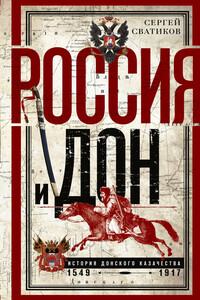
Предлагаем вашему вниманию адаптированную на современный язык уникальную монографию российского историка Сергея Григорьевича Сватикова. Книга посвящена донскому казачеству и является интересным исследованием гражданской и социально-политической истории Дона. В работе было использовано издание 1924 года, выпущенное Донской Исторической комиссией. Сватиков изучил колоссальное количество монографий, общих трудов, статей и различных материалов, которые до него в отношении Дона не были проработаны. История казачества представляет громадный интерес как ценный опыт разрешения самим народом вековых задач построения жизни на началах свободы и равенства.
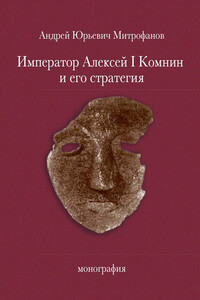
Монография доктора исторических наук Андрея Юрьевича Митрофанова рассматривает военно-политическую обстановку, сложившуюся вокруг византийской империи накануне захвата власти Алексеем Комнином в 1081 году, и исследует основные военные кампании этого императора, тактику и вооружение его армии. выводы относительно характера военно-политической стратегии Алексея Комнина автор делает, опираясь на известный памятник византийской исторической литературы – «Алексиаду» Анны Комниной, а также «Анналы» Иоанна Зонары, «Стратегикон» Катакалона Кекавмена, латинские и сельджукские исторические сочинения. В работе приводятся новые доказательства монгольского происхождения династии великих Сельджукидов и новые аргументы в пользу радикального изменения тактики варяжской гвардии в эпоху Алексея Комнина, рассматриваются процессы вестернизации византийской армии накануне Первого Крестового похода.
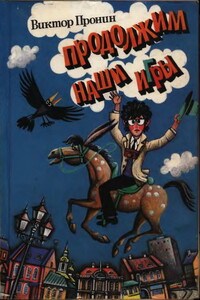
Виктор Пронин пишет о героях, которые решают острые нравственные проблемы. В конфликтных ситуациях им приходится делать выбор между добром и злом, отстаивать свои убеждения или изменять им — тогда человек неизбежно теряет многое.
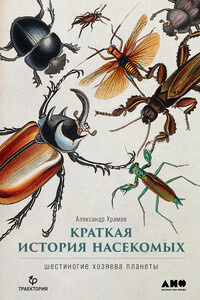
«Любая история, в том числе история развития жизни на Земле, – это замысловатое переплетение причин и следствий. Убери что-то одно, и все остальное изменится до неузнаваемости» – с этих слов и знаменитого примера с бабочкой из рассказа Рэя Брэдбери палеоэнтомолог Александр Храмов начинает свой удивительный рассказ о шестиногих хозяевах планеты. Мы отмахиваемся от мух и комаров, сражаемся с тараканами, обходим стороной муравейники, что уж говорить о вшах! Только не будь вшей, человек остался бы волосатым, как шимпанзе.

Настоящая монография посвящена изучению системы исторического образования и исторической науки в рамках сибирского научно-образовательного комплекса второй половины 1920-х – первой половины 1950-х гг. Период сталинизма в истории нашей страны характеризуется определенной дихотомией. С одной стороны, это время диктатуры коммунистической партии во всех сферах жизни советского общества, политических репрессий и идеологических кампаний. С другой стороны, именно в эти годы были заложены базовые институциональные основы развития исторического образования, исторической науки, принципов взаимоотношения исторического сообщества с государством, которые определили это развитие на десятилетия вперед, в том числе сохранившись во многих чертах и до сегодняшнего времени.
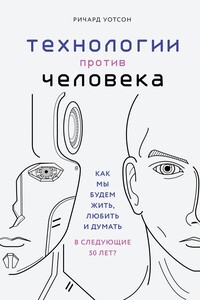
Эксперты пророчат, что следующие 50 лет будут определяться взаимоотношениями людей и технологий. Грядущие изобретения, несомненно, изменят нашу жизнь, вопрос состоит в том, до какой степени? Чего мы ждем от новых технологий и что хотим получить с их помощью? Как они изменят сферу медиа, экономику, здравоохранение, образование и нашу повседневную жизнь в целом? Ричард Уотсон призывает задуматься о современном обществе и представить, какой мир мы хотим создать в будущем. Он доступно и интересно исследует возможное влияние технологий на все сферы нашей жизни.